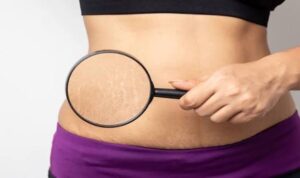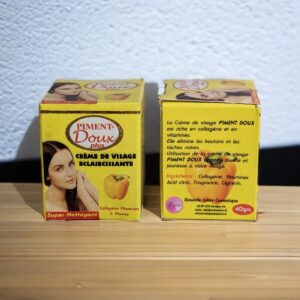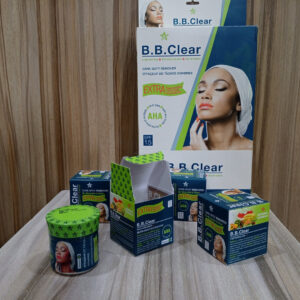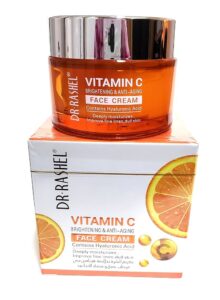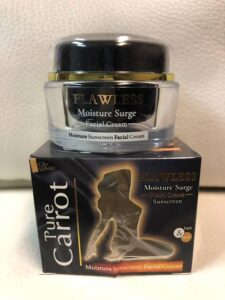
Acne that refuses to go away might have led you to exhaust all existing facial cleansers and skincare treatments plus home remedies. It might seem unbelievable, but shampoo has proven itself as a possible solution for those suffering from acne problems. Nizoral Shampoo, which received recognition for treating dandruff and fungal infections, has become famous for its ability to fight against acne.
Acne stands as a major skin condition that causes damage to personal confidence and social bonding as well as mental well-being for numerous Nigerians. The combination of high temperatures and the presence of sweat together with oil and environmental pollution leads to a more aggravated acne condition. Many people who seek an acne treatment wonder whether Nizoral shampoo actually works for this purpose.
This article provides a complete guide about ketoconazole-based Nizoral Shampoo, including its operating mechanism and its effectiveness against acne while also discussing a safe usage strategy. After reading this assessment, you will know whether this anti-dandruff shampoo should become a part of your skincare practice.
What Is Nizoral Shampoo?

The medicated shampoo Nizoral Shampo contains ketoconazole, which serves as an antifungal agent useful for treating dandruff and scalp infections. Nizoral shampoo functions by eliminating the yeast Malassezia, which leads to scalp-related problems such as flaking, itchiness, and irritation on the surface. The antifungal property of Malassezia makes it important to note that it causes a particular kind of acne condition known as fungal acne.
Traditional acne treatments mainly address bacteria and clogged pores together with excessive oil in the skin. Standard acne treatments will be ineffective for people whose acne stems from yeast rather than bacterial causes. Nizoral shampoo presents itself as a potential solution for these issues.
How Can Nizoral Shampoo Help with Acne?
1. It Targets Fungal Acne
Fungal acne, which doctors name as Malassezia folliculitis, shows similar symptoms to regular acne yet stems from yeast rather than bacterial growth. You can identify fungal acne through its appearance as clusters of small, itchy red bumps that show up on the forehead, chest, or back of the body. You should consider fungal acne as the cause if you have exhausted various acne treatments without success.
Nizoral, with its active ingredient ketoconazole, acts as an antifungal agent that reduces the yeast causing fungal acne.
2. It Reduces Oil Production
The hot and humid weather conditions in Nigeria cause excessive sweating so the skin becomes oily. Yeast flourishes when there is oil, which explains why fungal acne tends to occur frequently in such conditions. Nizoral shampoo controls oil production to create an area in which yeast finds it hard to survive.
3. It Has Anti-Inflammatory Properties
The main ingredient, ketoconazole, contained in this shampoo, actively reduces inflammatory responses and controls redness with simultaneous swelling and irritation control. You can use this shampoo to cool down inflammation from acne breakouts on your skin.
How to Use Nizoral Shampoo for Acne

These are the correct steps to use Nizoral for acne treatment:
For Facial Acne:
1. Lukewarm water should be used to dampen your facial skin because it offers the best results.
2. Use only a tiny quantity (pea-sized drop) of Nizoral on the affected skin locations.
3. Use your fingertips to apply a teaspoon amount of this product to your skin for one to two minutes without touching your eyes.
4. After the application time of 3-5 minutes, you must completely rinse away Nizoral Shampoo from your skin.
5. Dry your skin gently, and you should use a light moisturizer afterward.
Use Nizoral Shampoo according to the following instructions to treat acne on the chest, back, and shoulders.
1. The affected region needs to be hydrated with warm water during shower time.
2. Use a pea-sized portion of the Shampoo to create a lather on the concerned areas.
3. Allow the shampoo to stay on the skin for 5 minutes before you wash it off.
4. Application two to three times weekly will produce the most effective results.
How Long Does It Take to See Results?
Most individuals experience better skin appearance with this shampoo when using it properly for 1-2 weeks. A complete healing process of severe acne cases requires between 4 and 6 weeks of treatment.
You may need a different treatment option for bacterial acne since Nizoral Shampoo proves ineffective against this specific type of acne but can treat yeast acne effectively.
Are There Any Side Effects?
Almost everyone can use Nizoral shampoo safely, although few individuals encounter some potential risks, which include:
The skin becomes dry and starts to peel when people apply Nizoral too frequently.
Mild irritation or redness
Increased sensitivity to the sun
Use Nizoral shampoo only 2-3 times per week initially before deciding to extend its usage. After using Nizoral shampoo, you should apply a moisturizer to avoid dry skin.
Who Should Use Nizoral Shampoo for Acne?

The following conditions make Nizoral Shampoo a suitable treatment for you:
Acne, which appears in clusters and forms together with itchiness, is a sign that Nizoral may be the right treatment for you.
The standard treatments for acne have no effect on your persistent acne problems.
Acne develops more severe symptoms while you are exposed to a hot and humid atmosphere.
The combination of dandruff and oily skin with acne makes Nizoral Shampoo a suitable treatment.
Before using Nizoral Shampoo for acne, you should be cautious with dry or sensitive skin unless you receive medical approval from a dermatologist.
What Else Should You Know?
The intended use for Nizoral does not involve daily facial cleansing. Using Nizoral elemental oil too frequently might trigger skin dryness and produce irritating effects.
Nizoral shampoo proves most effective when people use it together with proper skincare practices. You need to apply a mild cleansing product that pairs with moisturizer and sunscreen when dealing with your skin care needs.
Nizoral does not solve every type of acne problem. You must seek alternative treatments such as benzoyl peroxide or salicylic acid when bacterial acne exists.
Frequently Asked Questions
1. When treating acne with Nizoral Shampoo, is it safe to apply it daily?
No. Excessive use of this shampoo has the potential to cause dryness of your skin. The recommended Nizoral usage is twice to three times per week, according to dermatologists, unless they provide different instructions.
2. Can I combine Nizoral shampoo treatment with different acne remedies?
Yes, but be cautious. Using Nizoral together with salicylic acid or benzoyl peroxide should be avoided on the same day because it may lead to skin irritation.
3. Does Nizoral shampoo present any benefits for treating hormonal acne cases?
You should avoid using this shampoo for any acne condition besides fungal acne. Different treatment methods must be used to address hormonal acne since this condition develops from internal hormonal changes.
4. Can I put Nizoral shampoo on both my face and scalp during one application?
Yes. The combination of dandruff and acne can be treated using this shampoo application on both your scalp and your facial skin. You should rinse your skin until all traces of shampoo are gone.
5. What happens to my face acne when I stop using Nizoral shampoo for treatment?
Discontinuing your use of Nizoral shampoo may create conditions for yeast growth to produce another breakout. The maintenance treatment of using Nizoral shampoo requires weekly applications to avoid recurrence.
6. Is Nizoral shampoo safe to use when dealing with dry skin?
Yes, but use it carefully. Right after rinsing it off, you need to apply a moisturizer on your skin to avoid dryness.
7. Does Nizoral Shampoo have the ability to diminish dark spots that result from acne?
It treats fungal acne yet fails to reduce dark spots on the skin. People who want to treat post-acne marks should consider using vitamin C or niacinamide in their treatment plan.
Final Thoughts
People struggling with persistent acne that shows signs of being fungal should consider using Nizoral Shampoo as their treatment. The product provides an affordable solution that is readily available across Nigeria and effectively treats fungal acne when applied properly.
Note that this shampoo does not solve every type of acne problem. It will not benefit patients with bacterial or hormonal acne since they need alternative therapeutic approaches.
Now it’s your turn! Have you already used Nizoral Shampoo to treat your acne? What is your experience with it?
Read more
4 Affordable Tresemme Shampoo and Conditioner Options in Nigeria
Best Shampoo Products for Natural Hair in Nigeria
How Elan Shampoo Can Help You Conquer Dandruff and Achieve a Flake-Free Scalp


